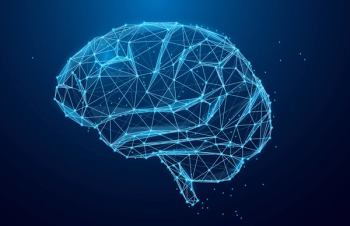
The Week in Review: May 8-12
From the relationship between social media and self-diagnosis to the FDA approval of the first treatment for agitation associated with Alzheimer disease dementia, here are highlights from the week in Psychiatric Times.
This week, Psychiatric Times® covered a wide variety of psychiatric issues and industry updates, from the relationship between social media and self-diagnosis to the FDA approval of the first treatment for agitation associated with Alzheimer disease dementia. Here are some highlights from the week.
FDA Approves First Treatment for Agitation Associated With Alzheimer Disease Dementia
Brexpiprazole (Rexulti) has been approved by the US Food and Drug Administration for the treatment of agitation associated with Alzheimer disease dementia (AAD). It is now the first FDA-approved treatment indicated for AAD in the United States.
“The FDA has approved the first ever drug to treat AAD, one of the largest unmet needs in medicine and neuropsychiatry in the context of a rapidly ageing population,” said John J. Miller, MD, Editor in Chief of Psychiatric Times. “Baby boomers are retiring and Alzheimer disease is on the rise, and AAD in one of the most difficult complications of dementia. Meanwhile, the need for treatments of Alzheimer disease and dementia remains huge and largely unaddressed. This approval parallels nicely with recent drug development and research working on decreasing disease progression by removing amyloid plaque with monoclonal antibodies and improving cognitive function.”
Psychoeducation or Psychiatric Contagion? Social Media and Self-Diagnosis
"I have autism. All my friends say so,” announced “Asher,” the cheerful nonbinary 17-year-old sitting in my office. “I need a diagnosis for school so I can be excused from class when I get overwhelmed.” I was taken aback. Asher was one of the most engaging, expressive, and social adolescents in our Partial Hospital program, and they had no history of developmental concerns of any kind.
Subsequent interviews with their mother, teacher, and therapist revealed no symptoms related to autism, except for sensitivity to loud noises. However, relating my opinion to Asher that they do not have autism was met not with relief but frustration: “I do have autism. You just don’t get it.”
Using Collaborative Care to Improve Outcomes for Patients With Schizophrenia and COVID-19
Individuals with schizophrenia have experienced an increase in psychiatric, medical, and treatment risks because of the COVID-19 pandemic. The following is an overview of risk factors and an example of patient-centered, collaborative care that promotes stabilization and safety while providing available treatment options for cooccurring diagnoses of COVID-19 and schizophrenia spectrum disorder.
Increased Risks
The stress of the COVID-19 crisis crashed in waves across the United States and its care continuum. Hospitals, medical offices, and care centers were all impacted significantly, and the psychiatric service line was unquestionably negatively affected. Modifications in mental health services occurred in response to growing concerns related to the pandemic and the impacted workforce.
Everything You Need to Know When Referring Patients to Ketamine Therapy Clinics
Ketamine-assisted therapy has generated a lot of attention over the last decade as researchers uncover new therapeutic applications. While ketamine was once viewed as a recreational drug for students and partygoers, ketamine-assisted therapy is an evidence-based treatment that can alleviate the symptoms of various mental health conditions, including anxiety, depression, posttraumtic stress disorder, obsessive-compulsive disorder, trauma, and more.
Researchers have explored the potential behavioral health applications of psychedelics for several decades and found ketamine's dissociative and analgesic properties extend to painful emotions and memories. When used in a clinical setting, ketamine acts as a therapy incubator, allowing patients and their therapists to gain a deeper level of trust and understanding. Patients can feel safe letting their guard down to access distressing memories without overwhelm, rapidly paving the way for future success.
See more recent coverage from Psychiatric Times
Do you have a comment on any of these or other articles? Have a good idea for an article and want to write? Interested in sharing your perspectives? Write to us at PTeditor@mmhgroup.com.
Newsletter
Receive trusted psychiatric news, expert analysis, and clinical insights — subscribe today to support your practice and your patients.







